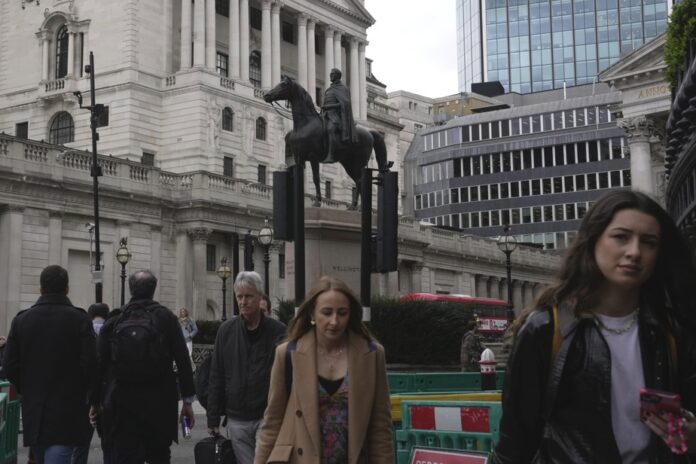(London) The fight against “ inflationary pressures ” took precedence over shocks in the banking sector: the Bank of England (BoE) also raised its key rate on Thursday, mimicking the Fed, the ECB and the central banks in Switzerland and Norway.
The BoE tightened its rate for the eleventh consecutive time, by 0.25 points, a magnitude similar to that of the all-powerful US Federal Reserve (Fed) the previous day.
And the head of the Bank of England Andrew Bailey was optimistic in front of British media Thursday about the banking sector, assuring that “in this country, we are in a much stronger situation” than in 2008, at the time of the great financial crisis.
The Swiss National Bank (SNB) followed the path of the European Central Bank (ECB) earlier in the day last week by raising its rate by 0.50 percentage points. In Norway, the monetary institution has chosen 25 basis points.
The BoE’s key rate is now at 4.25%, its highest since late 2008.
Already on Wednesday evening, the Fed had tried with a modest increase to spare the goat and the cabbage, between the financial turbulence of the last few days and a waltz of persistent price tags.
On both sides of the Atlantic, the number one objective of central banks remains to achieve inflation at 2%, which is still far from being achieved.
But the bankruptcy of the Californian Silicon Valley Bank (SVB), then of two other American regional banks, showed to what extent the banking sector had been weakened by the frantic monetary tightening of the last few months.
For the moment, the economic crisis seems to be more worrying in the United States than in Europe.
The Fed now suggests that the end of its cycle of monetary tightening is approaching: it now adopts the conditional to evoke that “ a future tightening of monetary policy may be necessary ” instead of an affirmative mode.
She also warned at the end of her meeting that the banks’ recent setbacks were “ likely […] to weigh on economic activity ” with an “ uncertain magnitude ”.
The risk is not limited to the United States, as proved by the hasty takeover of Credit Suisse by UBS at a bargain price: ECB President Christine Lagarde acknowledged on Wednesday that tensions in the banking sector were creating “new risks” for the economy.
And in the United Kingdom, “ there remain channels through which British economic conditions could be affected ”, in particular in the event of “ stress on non-British banks ”, the central bank warned on Wednesday in a letter to Parliament.
But the BoE has not lowered its growth forecasts, and is even counting on a small boost from the budgetary measures announced earlier in the month.
With inflation rebounding in February and remaining above 10% year-on-year, and economic activity picking up some color, investors believe the BoE will raise rates one last time at its next meeting.
“We can’t know if we’ve peaked” in rates, acknowledged Mr. Bailey, who also said he needed to see inflation come down as expected before stopping monetary tightening.
In Switzerland, where the SNB rate remains relatively low at 1.5%, central bank boss Thomas Jordan said it was “not excluded that further hikes are needed to ensure price stability” . Inflation there remains more moderate than in many European countries, at 3.4% year-on-year, but it has accelerated in recent months.
“ The Bank clearly wanted to turn the page on the Credit Suisse saga ”, Judge Adrian Prettejohn, analyst at Capital Economics, who notes that the SNB has raised its growth forecasts for 2023 and believes that the bank will raise its rate again a times this year.
And in Norway, the central bank raised its rate to 3%, while inflation, although it slowed in February, remains at 6.3% year-on-year.
The dollar was down against the pound, Swiss franc and Norwegian krone, but the movement remained subdued, as central bank decisions had been anticipated.





